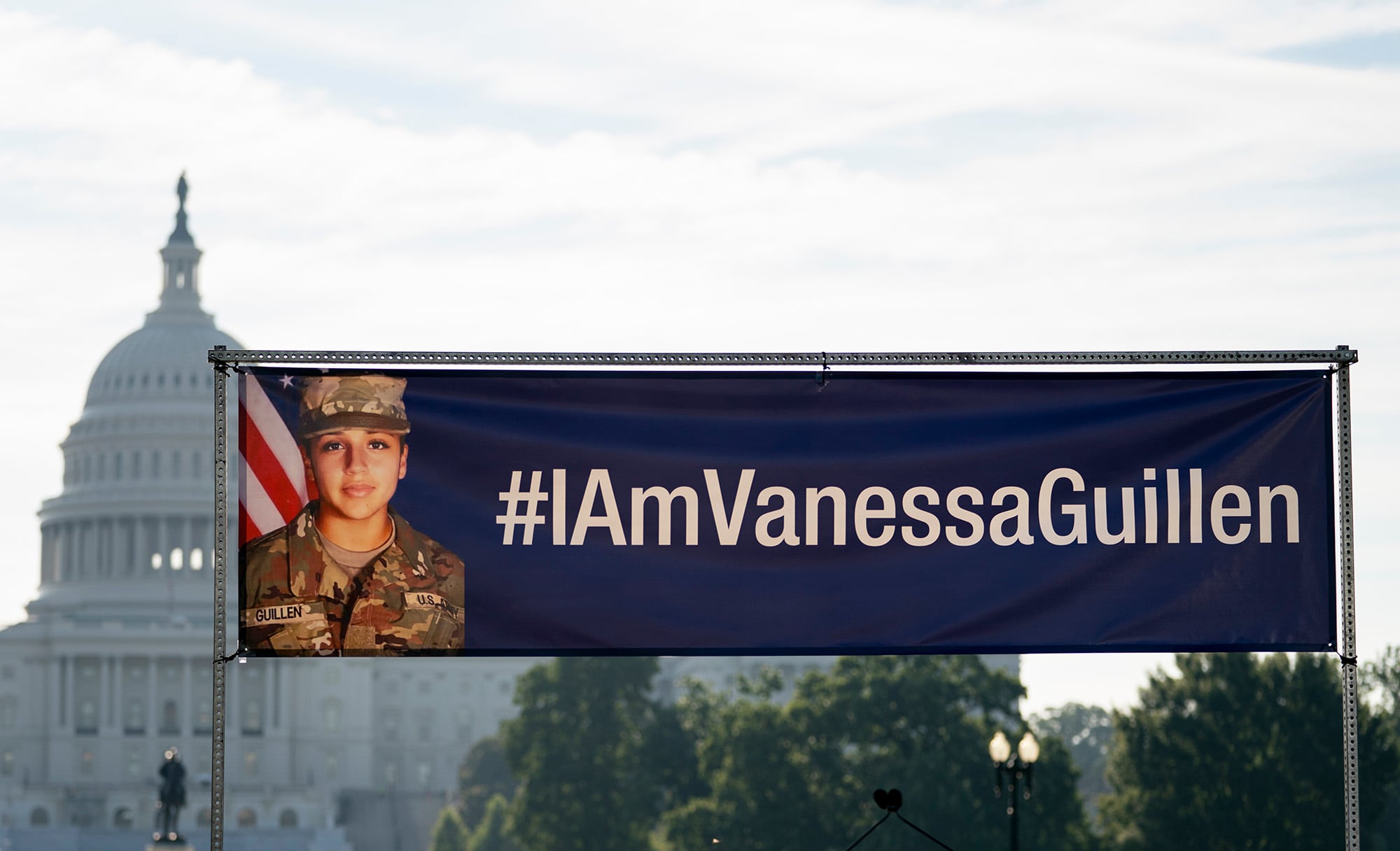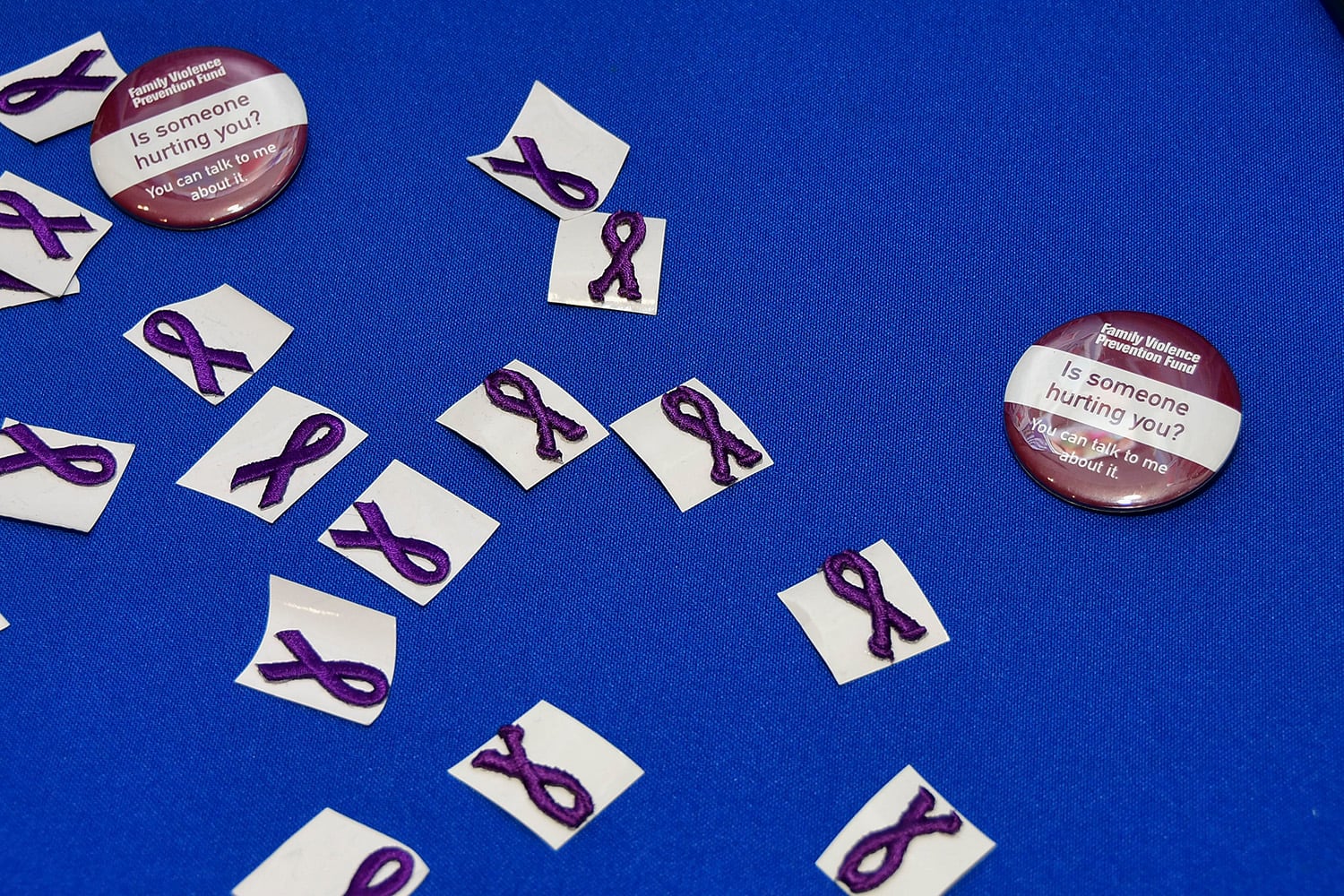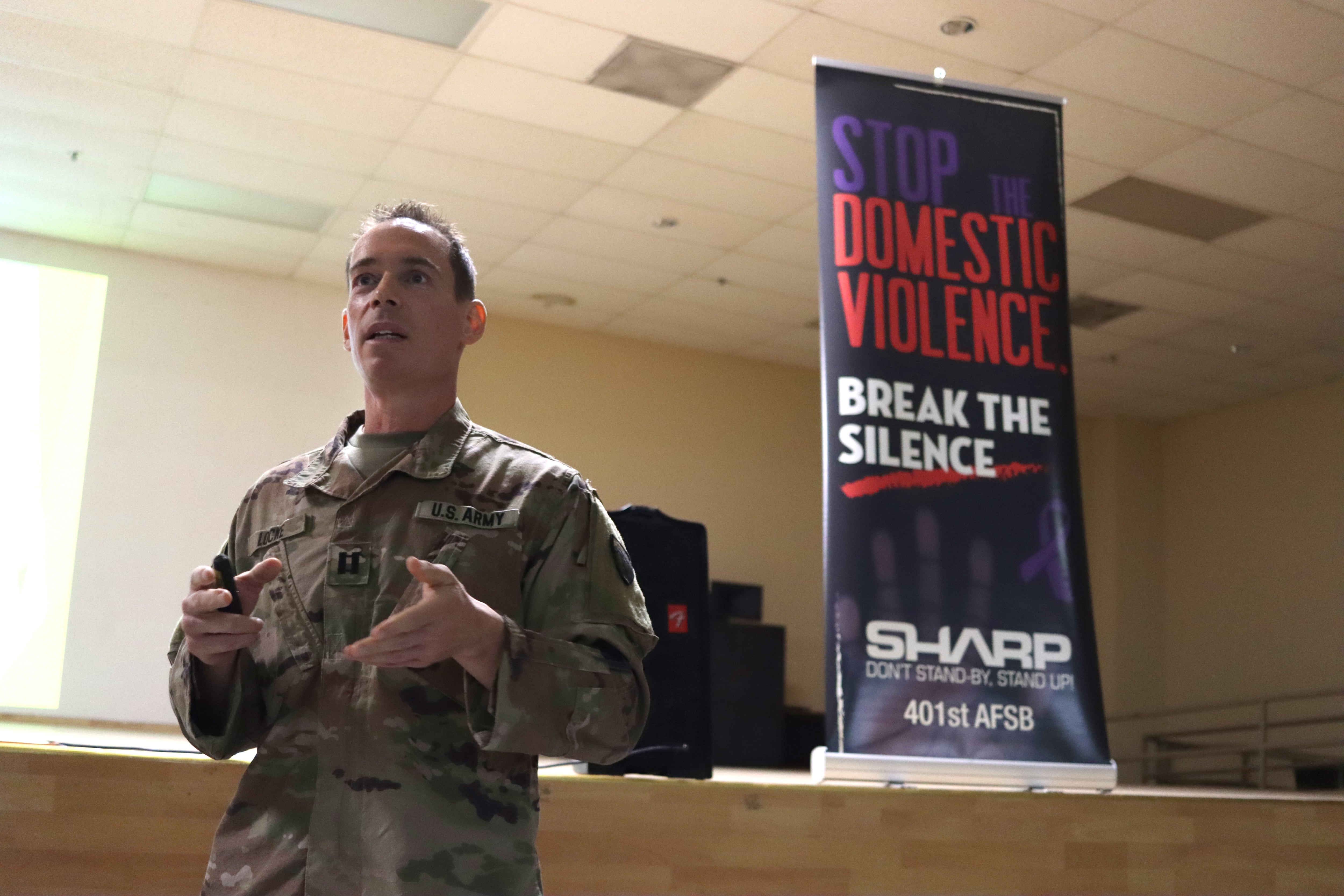In an effort aimed at reducing domestic violence in the ranks, a pair of senators is pushing for widespread improvements to the Defense Department’s Family Advocacy Program to include better outreach about the service to military spouses.
The bipartisan measure — introduced late Wednesday by Sens. Kyrsten Sinema, D-Ariz., and John Cornyn, R-Texas — would create a pilot program requiring introductory information about the family program whenever spouses sign up for the Defense Enrollment Eligibility Reporting System, required for a host of family benefits.
It would also mandate periodic reports on Family Advocacy Program staffing and coordination with other installations and services on ways to better connect with spouses in need.
RELATED

Supporters of the measure said improvements to the Family Advocacy Program could help save lives of service members and spouses caught in those types of situations.
“Far too often, service members and their family members do not seek help when dealing with domestic violence, resulting in serious consequences that could have been prevented,” said Jennifer Dane, interim executive director of the Modern Military Association of America.
“Our military families deserve better, and it’s critical that we take action to stop the escalation of violence through earlier education, prevention, and treatment.”
The military’s Family Advocacy Programs provide a host of counseling and assistance programs, including family financial reviews, classes on child care and caregiving services, and victim advocacy work.
Despite that, Defense Department officials have estimated that fewer than 1 in 5 domestic violence victims have reported problems to their installation’s FAP. In 2018, the Department of Defense reported nearly 17,000 cases of intimate partner violence, 15 of those resulting in a death.
“Domestic violence survivors in the military deserve our full support as they rebuild and recover, and we owe it to them to ensure perpetrators are held accountable,” Sinema said in a statement.
The measure is one of several proposals offered by lawmakers in recent months to address the issues of sexual misconduct against women in the military, and comes on the heels of several high-profile cases of violence against women in the military this year.
In June, Airman 1st Class Natasha Aposhian was killed at Grand Forks Air Force Base in North Dakota by a fellow airman after she tried to end their relationship, according to investigators.
In April, Army Spc. Vanessa Guillen was killed at Fort Hood in Texas, investigators say, by a fellow soldier who had sexually harassed her. Her remains were not found by Army investigators until more than two months after her death. The case drew widespread outrage over the military’s slow response to both the murder and her complaints of harassment.
RELATED

In September, multiple House members unveiled plans for the “I Am Vanessa Guillén” Act which would make sexual harassment a punishable crime under the Uniform Code of Military Justice and require independent investigators outside the military chain of command take the lead assault and harassment cases.
House leaders have promised a vote on that measure before the end of the year. However, its chances of becoming law in 2020 are slim, given the few legislative days left before the next session of Congress is seated in early January.
However, that measure and the proposed FAP could become key focus points of more comprehensive legislative work on the issue next year.
Leo covers Congress, Veterans Affairs and the White House for Military Times. He has covered Washington, D.C. since 2004, focusing on military personnel and veterans policies. His work has earned numerous honors, including a 2009 Polk award, a 2010 National Headliner Award, the IAVA Leadership in Journalism award and the VFW News Media award.




